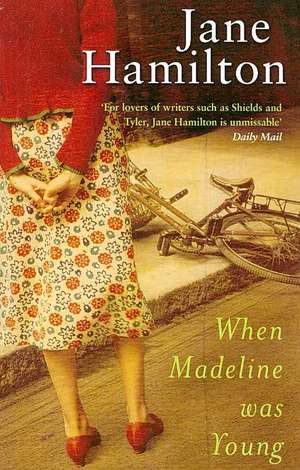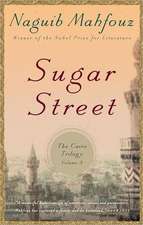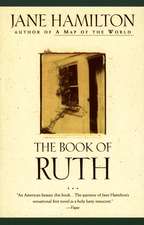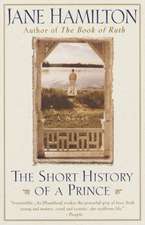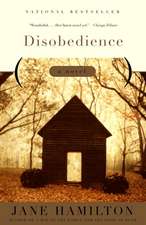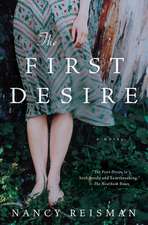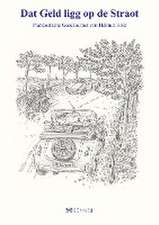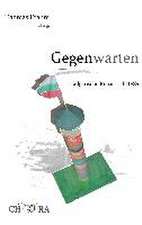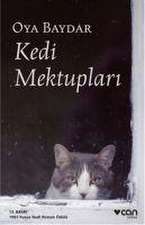When Madeline Was Young
Autor Jane Hamiltonen Limba Engleză Paperback – 26 feb 2008
| Toate formatele și edițiile | Preț | Express |
|---|---|---|
| Paperback (2) | 100.39 lei 22-36 zile | +9.95 lei 5-11 zile |
| Transworld Publishers Ltd – 26 feb 2008 | 100.39 lei 22-36 zile | +9.95 lei 5-11 zile |
| Anchor Books – 31 aug 2007 | 117.39 lei 22-36 zile |
Preț: 100.39 lei
Nou
Puncte Express: 151
Preț estimativ în valută:
19.21€ • 20.11$ • 15.89£
19.21€ • 20.11$ • 15.89£
Carte disponibilă
Livrare economică 17-31 martie
Livrare express 28 februarie-06 martie pentru 19.94 lei
Preluare comenzi: 021 569.72.76
Specificații
ISBN-13: 9780552773676
ISBN-10: 0552773670
Pagini: 352
Dimensiuni: 129 x 198 x 29 mm
Greutate: 0.24 kg
Editura: Transworld Publishers Ltd
ISBN-10: 0552773670
Pagini: 352
Dimensiuni: 129 x 198 x 29 mm
Greutate: 0.24 kg
Editura: Transworld Publishers Ltd
Notă biografică
JANE HAMILTON is the author of The Book of Ruth, winner of the PEN/Hemingway Award for first fiction, and A Map of the World, a New York Times Notable Book of the Year and named one the top ten books of the year by Entertainment Weekly, Publishers Weekly, the Miami Herald, and People. Both The Book of Ruth and A Map of the World have been selections of Oprah's Book Club. Her following work, The Short History of a Prince, was a Publishers Weekly Best Book of 1998, and her novel Disobedience, was published by Doubleday in 2000. She lives in and writes in an orchard farmhouse in Wisconsin.Please visit her website: http://www.randomhouse.com/features/janehamilton/
Extras
Chapter One
Everyone when I was growing up had a dog or a brother or a cousin, someone close by, called Buddy. The Buddy in my life had been christened Samuel Schubert Eastman in 1946. Certainly he deserved a dignified name, and yet we boys knew that for everyday use "Samuel" was too grave for a person like Buddy. Our cousin, as heroes must be, was the specimen among us. He was graced with sandy hair, green eyes, a dusting of freckles on his sunburnt nose, and thick gold lashes that matted in triangles against his cheeks after swimming. My mother used to say that his delicate features and those starlet eyelashes in his athlete's body were what confused the girls, the poor things sure he was tender. When he was fourteen, he told me part of what he guessed was a family secret, drawing me in one night with that piece of overrated information, the cheap start, the chocolate with a boozy liquid center. Buddy didn't yet know that there are a limited number of secrets in the repertory, very few of them worth disclosing, most of them good only for the quick thrill of stopping the pulse: suddenly you are not who you think you are. Despite his revelation and his alarming suggestion, it was even then his use of the word "secret" that seemed most vulgar.
We were sitting on the end of the dock at Moose Lake in northern Wisconsin. The house far up on the hill was not an ordinary Moose Lake cottage, the usual clapboard structure with uneven floorboards and a screened-in porch. No, the Maciver family house was made of granite and oak, walnut, copper, and English brick, a fortress with seven fireplaces and fifteen bedrooms, each with a sink scrubbed clean in the corner. Five of the rooms had their own sleeping porches, with faded cotton hammocks from Barbados strung across, the place the girls napped on the hot afternoons. There was also an icehouse, a pump house, a summer kitchen, a boathouse, and a barn. We were all proud to have an estate, which, we were called to remember, was the fruit of our dead grandfather's labor. That he was related to us seemed implausible--a man who had grown rich manufacturing glue? He had shot a buffalo on the range, the rug in the parlor as proof, but also with that nimble trigger finger he'd mounted and labeled and framed his butterfly collection. We loved to look at the petticoat wings and the sad balding thoraxes, the part that embarrassed us. Our forebear, the captain of industry, the great hunter, the lover of beauty, had been clever enough not to lose all of his fortune in the Depression, had made it possible for us boys of the glue dynasty to spend our days under our grandmother's direction in the boot camp of summer idleness. On her schedule we swam, we played tennis, we fished, and we chopped wood.
Buddy mentioned the putative family scandal to me one night, after we'd finally been released from the evening game of charades, all of us slow to get my grandmother's Sapphira and the Slave Girl. He and I were sitting on the rough wood slats of the dock, as we often did, moving our feet through the water, Buddy reviewing what had just happened or telling me what we might accomplish next. As if the idea were just occurring to him he said, "Hey! You know Madeline, pretty Madeline!" He was singing her name. "You could feel her up and it's not like you'd be a pervert. And if you knocked her up--say you knocked her up--she'd have a drooling mongrel that looked like you, but there's no way it would be a real half-breed."
When I didn't answer, he nudged me with his elbow. "What's the matter? You mean you don't know about your"--here he drew out the word, hissing in my face--"sister? She's fair game, Brains, that's what I'm telling you. Everyone should be that lucky, to have the opportunity right here in the home."
I knew about mating, my father's word, and I had the vaguest sense from dreams that my tallywhacker, as my mother fondly called the part--although it was unruly and had unreasonable hopes--might even so be a source of pride to me someday. In my waking hours it scared me to think of that someday, and I couldn't in much detail imagine how another person could participate in my privacy. The mechanics, then, the logistics of feeling a girl up, were impossible: not only how and of course where, exactly, but why?
"Madeline's not related to any of us!" Buddy cried, cuffing my shoulder. "The big secret, pal."
"I know it," I lied.
She'd probably really appreciate the, uh, attention." He laughed into his chest, my worldly cousin enjoying his own joke.
I suspect that my parents had told me about Madeline in some fashion when I was little, so that I'd always held the knowledge that strictly speaking she was not a blood relative. But she behaved as sisters do, and my parents treated her as one of us, and because she was perennially young I never thought of her as anything but sister. My parents were raising Louise and me, and always Madeline, educating us according to our abilities to be thoughtful, useful, and loving, keepers of the New Deal.
Later that night, in the boathouse, where all the boys slept, I lay awake brooding over what Buddy had told me. There was no electricity in the building, nor were there lights around the lake. The rough pine walls were dirty from decades of kerosene smoke, and the sheets that had once been white were dull from our heat and sweat. The darkness was complete. I had a hazy understanding that Madeline was some kind of relation--exactly how eluded me--who had been injured as a young woman. I was horrified even starting to think about her, against my will, in the way Buddy had directed. Everyone else in the room was asleep, and although I would have liked to go outside I felt that I shouldn't get up or move around. My stomach began to ache, as it often did when I was with Buddy for long. I could never repeat what he'd said, not to anyone, and most of all not to my parents. For the first time I wondered if they had to worry about Madeline, if she was ever in danger from the neighborhood teenagers, some of them nearly as adult as Buddy. My cousin surely wouldn't have hurt Madeline, and by "hurt" I meant kissing. But the way he had laughed into his shirt made me consider and reject and wonder again if he might have done something to my sister.
Madeline was in fact my father's age, forty-one that year. If Buddy had told me right off that Madeline had once been my father's wife, what would I have said or done, sitting on the pier, my legs in the water? Would I have laughed out loud? Would I have given a few kicks, splashing my cousin, making sure to get him all wet? Maybe I'd have argued, saying that a person who wasn't capable of doing logic puzzles past a second-grade level could hardly have been a wife. Or, as Buddy spoke, would my heart have abruptly begun to beat in my chest, hard, loud thumps--that overburdened muscle always the organ that registers the truth?
I suppose it's odd that for the length of my childhood Madeline never looked any different to me. I'd heard it said by the women on our block that she was a beauty--"a real Princess Grace," one of them called her. Despite Madeline's height and her regal charms, I always thought of her as a girl, first someone who was my older sister and then, forever after, when I'd bypassed her intellectually, as my youngest sister. She was long-legged and slim, with a silky blond ponytail, each day a fresh ribbon, a new color around the rubber band. Every other night, after her bath, she sat on my mother's bed under the Lady Vanity hair dryer, imperial in the shower-cap device, the diadem that was puffy from the hot air blowing through a fat cord. She did have a high forehead and notable cheekbones, and, by rights as a princess, a rosy mouth that puckered so prettily into a pout, what could be the precursor to a squall. She was a firm believer in outfits, so that if she was dressed in an ensemble as simple as a pair of turquoise-and-yellow-checked pedal pushers and a sleeveless yellow shirt, her socks were bound to be just that yellow, and her tennis shoes, somehow, miraculously, were exactly the turquoise of her slacks. Twice a year my mother took her to a charity resale store, where Madeline, in a fever of excitement, updated her wardrobe. She was a girl who laid tops and bottoms on the rug before she went to sleep, and who insisted that Russia, the cleaning lady, iron her play clothes.
I say she seemed a girl to me, but I also knew she was of her own kind--Madeline, the only one of us outside of time. I was old enough to understand the strange, mournful noise that came from her lonely bedroom, the sound of adult pleasure a person was supposed to stifle. I didn't want to think about any of it as I lay awake at Moose Lake. Somewhere in the middle of the night I realized that what was disturbing me most had nothing to do with my own family. I sat up suddenly, fumbled around on my windowsill, and struck a match. Madeline, my father, my mother, and even Louise and I--our lives were not to be made into stories for Buddy to tell. I lit the candle in order to look at him, unafraid then of waking anyone. His full, smooth lips were open against his pillow, his freckled back rising and falling. Before me was the boy who had the rest of his unending life to be the Maciver bard, to alter our history to suit himself. It surprised me, standing so close, that his breath was as sour as any of the other boys' familiar stink. Of course I had smelled him every summer, smelled his particular sweat mixed with the faint tang of Old Spice, but I hadn't realized that I didn't like it. I was unaccustomed to feeling insubordination with Buddy, and yet I was sure that in a minute I would effortlessly tip the flame to his soft, worn sheet and set him on fire.
Chapter Two
Buddy and I didn’t discuss Madeline after that night at the lake--not because he'd expired in a plume of flames before my eyes, but because the topic didn't present itself again. We went on during the vacation as if the conversation hadn't taken place, or as if I had gladly soaked up the scant communication and had no further questions. He used to jump me from behind, always a big joke, and we'd tumble down the hill wrestling. As I remember, right after the revelation I did resist him with more force than usual and also almost pinned him, something I rarely was able to do. Still, it would never have crossed his mind that because of our talk it was he I might think of in a different light, rather than Madeline. She was not after all a girl you could consider for very long, weighing this part of her personality against that part. You spent your time with her fighting boredom, the way you would if you were told to watch little children. Even though in Buddy's character there was more range, although he was not simple, surely he would have had no idea that anyone might lose admiration for him.
That summer he introduced me to alcohol, and under the influence of the small amount of beer he was able to pilfer, we gambled with nickels instead of pennies. Our bad behavior is quaint now, adorable even, but at the time I thought we were in the most serious danger; I was certain that the discovery and our punishment would be so shaming, our characters so besmirched, that we would never really recover ourselves. We drank up in the woods in the dark, the one bottle going straight to my head, and afterward we'd stumble into the boathouse for cards with the younger boys. It stood to reason, then, that Buddy should have retained his luster. He instructed us as a group about "women," he called them, always pursing his lips as if he were whistling right before the "wo," and smiling hard on the "n," humming the final sound, in case the importance of the word should escape our notice. Our goal, he told us, was to get the goods from women with the least amount of trouble. His advice by and large ran toward pacification as the means to maintaining the upper hand, a general principle beyond our reach.
"Say you've snagged yourself a woman," he'd say, taking his time to arrange his cards. "Once you've got her, you want to make sure you tell her she's foxy, a doll face, a biscuit, but don't go overboard, you understand? You flirt with other women just enough to keep her on edge. You act like you're listening to the whining, you keep your peepers on her, you wrinkle your eyebrows." He demonstrated, head cocked, skin creased, the paragon of attention. "Why do you do this, boys?"
He couldn't really expect us to know the answer, could he? We all looked at the floor.
"Why?" he asked again. Cousin Nick coughed, and Petie accidentally dropped the rock he'd been holding. "Because," Buddy finally said, "you are concerned."
We nodded solemnly, hopeful that when our moment with a female came we could do exactly as he said. Although he had the sense that beer was too adult for the others, he had us all smoking cigarettes.
"Let me tell you something"--he'd take a drag no-handed as he slapped his cards down, the cigarette lifting when he drew in, the thing somehow staying firm on the ledge of his lower lip as he exhaled. "Getting pussy, it's like buying a car. You make your offer, right? The salesman counters, you make another offer, the salesman comes back with a bum deal." He surveyed the circle. "What do you do?" Again, that quiet. "Do you take it?"
"What's pussy?" said Cousin Petie, who had only recently been allowed to sleep with the big boys.
We laughed, most of us with the heartiness of discomfort, unsure ourselves of the details.
"You do not take the deal, you hear me? You hit the trail. Nine times out of ten, the hustler is at your heels, begging for your business."
Not long ago, I remembered that simile of Buddy's with my cousin Nick. We both recalled being confused enough to wonder which a person should do first, buy a car in order to get a girl, or get the girl so that purchasing the Chevy would be second nature. We marveled at Buddy's ease, the confidence in his delivery. "What you've got to realize, gentlemen," Buddy would say, "is that every single cupcake--unless she's a twatless freak of nature--has a pussy. Don't forget that. You fall for a certain broad, you start thinking she's the only one to get you all dick-brained. That happens, you might as well kiss yourself goodbye." He'd had real experience and he'd taken the time to consider his encounters. We knew his wisdom was hard-earned.
From the Hardcover edition.
Everyone when I was growing up had a dog or a brother or a cousin, someone close by, called Buddy. The Buddy in my life had been christened Samuel Schubert Eastman in 1946. Certainly he deserved a dignified name, and yet we boys knew that for everyday use "Samuel" was too grave for a person like Buddy. Our cousin, as heroes must be, was the specimen among us. He was graced with sandy hair, green eyes, a dusting of freckles on his sunburnt nose, and thick gold lashes that matted in triangles against his cheeks after swimming. My mother used to say that his delicate features and those starlet eyelashes in his athlete's body were what confused the girls, the poor things sure he was tender. When he was fourteen, he told me part of what he guessed was a family secret, drawing me in one night with that piece of overrated information, the cheap start, the chocolate with a boozy liquid center. Buddy didn't yet know that there are a limited number of secrets in the repertory, very few of them worth disclosing, most of them good only for the quick thrill of stopping the pulse: suddenly you are not who you think you are. Despite his revelation and his alarming suggestion, it was even then his use of the word "secret" that seemed most vulgar.
We were sitting on the end of the dock at Moose Lake in northern Wisconsin. The house far up on the hill was not an ordinary Moose Lake cottage, the usual clapboard structure with uneven floorboards and a screened-in porch. No, the Maciver family house was made of granite and oak, walnut, copper, and English brick, a fortress with seven fireplaces and fifteen bedrooms, each with a sink scrubbed clean in the corner. Five of the rooms had their own sleeping porches, with faded cotton hammocks from Barbados strung across, the place the girls napped on the hot afternoons. There was also an icehouse, a pump house, a summer kitchen, a boathouse, and a barn. We were all proud to have an estate, which, we were called to remember, was the fruit of our dead grandfather's labor. That he was related to us seemed implausible--a man who had grown rich manufacturing glue? He had shot a buffalo on the range, the rug in the parlor as proof, but also with that nimble trigger finger he'd mounted and labeled and framed his butterfly collection. We loved to look at the petticoat wings and the sad balding thoraxes, the part that embarrassed us. Our forebear, the captain of industry, the great hunter, the lover of beauty, had been clever enough not to lose all of his fortune in the Depression, had made it possible for us boys of the glue dynasty to spend our days under our grandmother's direction in the boot camp of summer idleness. On her schedule we swam, we played tennis, we fished, and we chopped wood.
Buddy mentioned the putative family scandal to me one night, after we'd finally been released from the evening game of charades, all of us slow to get my grandmother's Sapphira and the Slave Girl. He and I were sitting on the rough wood slats of the dock, as we often did, moving our feet through the water, Buddy reviewing what had just happened or telling me what we might accomplish next. As if the idea were just occurring to him he said, "Hey! You know Madeline, pretty Madeline!" He was singing her name. "You could feel her up and it's not like you'd be a pervert. And if you knocked her up--say you knocked her up--she'd have a drooling mongrel that looked like you, but there's no way it would be a real half-breed."
When I didn't answer, he nudged me with his elbow. "What's the matter? You mean you don't know about your"--here he drew out the word, hissing in my face--"sister? She's fair game, Brains, that's what I'm telling you. Everyone should be that lucky, to have the opportunity right here in the home."
I knew about mating, my father's word, and I had the vaguest sense from dreams that my tallywhacker, as my mother fondly called the part--although it was unruly and had unreasonable hopes--might even so be a source of pride to me someday. In my waking hours it scared me to think of that someday, and I couldn't in much detail imagine how another person could participate in my privacy. The mechanics, then, the logistics of feeling a girl up, were impossible: not only how and of course where, exactly, but why?
"Madeline's not related to any of us!" Buddy cried, cuffing my shoulder. "The big secret, pal."
"I know it," I lied.
She'd probably really appreciate the, uh, attention." He laughed into his chest, my worldly cousin enjoying his own joke.
I suspect that my parents had told me about Madeline in some fashion when I was little, so that I'd always held the knowledge that strictly speaking she was not a blood relative. But she behaved as sisters do, and my parents treated her as one of us, and because she was perennially young I never thought of her as anything but sister. My parents were raising Louise and me, and always Madeline, educating us according to our abilities to be thoughtful, useful, and loving, keepers of the New Deal.
Later that night, in the boathouse, where all the boys slept, I lay awake brooding over what Buddy had told me. There was no electricity in the building, nor were there lights around the lake. The rough pine walls were dirty from decades of kerosene smoke, and the sheets that had once been white were dull from our heat and sweat. The darkness was complete. I had a hazy understanding that Madeline was some kind of relation--exactly how eluded me--who had been injured as a young woman. I was horrified even starting to think about her, against my will, in the way Buddy had directed. Everyone else in the room was asleep, and although I would have liked to go outside I felt that I shouldn't get up or move around. My stomach began to ache, as it often did when I was with Buddy for long. I could never repeat what he'd said, not to anyone, and most of all not to my parents. For the first time I wondered if they had to worry about Madeline, if she was ever in danger from the neighborhood teenagers, some of them nearly as adult as Buddy. My cousin surely wouldn't have hurt Madeline, and by "hurt" I meant kissing. But the way he had laughed into his shirt made me consider and reject and wonder again if he might have done something to my sister.
Madeline was in fact my father's age, forty-one that year. If Buddy had told me right off that Madeline had once been my father's wife, what would I have said or done, sitting on the pier, my legs in the water? Would I have laughed out loud? Would I have given a few kicks, splashing my cousin, making sure to get him all wet? Maybe I'd have argued, saying that a person who wasn't capable of doing logic puzzles past a second-grade level could hardly have been a wife. Or, as Buddy spoke, would my heart have abruptly begun to beat in my chest, hard, loud thumps--that overburdened muscle always the organ that registers the truth?
I suppose it's odd that for the length of my childhood Madeline never looked any different to me. I'd heard it said by the women on our block that she was a beauty--"a real Princess Grace," one of them called her. Despite Madeline's height and her regal charms, I always thought of her as a girl, first someone who was my older sister and then, forever after, when I'd bypassed her intellectually, as my youngest sister. She was long-legged and slim, with a silky blond ponytail, each day a fresh ribbon, a new color around the rubber band. Every other night, after her bath, she sat on my mother's bed under the Lady Vanity hair dryer, imperial in the shower-cap device, the diadem that was puffy from the hot air blowing through a fat cord. She did have a high forehead and notable cheekbones, and, by rights as a princess, a rosy mouth that puckered so prettily into a pout, what could be the precursor to a squall. She was a firm believer in outfits, so that if she was dressed in an ensemble as simple as a pair of turquoise-and-yellow-checked pedal pushers and a sleeveless yellow shirt, her socks were bound to be just that yellow, and her tennis shoes, somehow, miraculously, were exactly the turquoise of her slacks. Twice a year my mother took her to a charity resale store, where Madeline, in a fever of excitement, updated her wardrobe. She was a girl who laid tops and bottoms on the rug before she went to sleep, and who insisted that Russia, the cleaning lady, iron her play clothes.
I say she seemed a girl to me, but I also knew she was of her own kind--Madeline, the only one of us outside of time. I was old enough to understand the strange, mournful noise that came from her lonely bedroom, the sound of adult pleasure a person was supposed to stifle. I didn't want to think about any of it as I lay awake at Moose Lake. Somewhere in the middle of the night I realized that what was disturbing me most had nothing to do with my own family. I sat up suddenly, fumbled around on my windowsill, and struck a match. Madeline, my father, my mother, and even Louise and I--our lives were not to be made into stories for Buddy to tell. I lit the candle in order to look at him, unafraid then of waking anyone. His full, smooth lips were open against his pillow, his freckled back rising and falling. Before me was the boy who had the rest of his unending life to be the Maciver bard, to alter our history to suit himself. It surprised me, standing so close, that his breath was as sour as any of the other boys' familiar stink. Of course I had smelled him every summer, smelled his particular sweat mixed with the faint tang of Old Spice, but I hadn't realized that I didn't like it. I was unaccustomed to feeling insubordination with Buddy, and yet I was sure that in a minute I would effortlessly tip the flame to his soft, worn sheet and set him on fire.
Chapter Two
Buddy and I didn’t discuss Madeline after that night at the lake--not because he'd expired in a plume of flames before my eyes, but because the topic didn't present itself again. We went on during the vacation as if the conversation hadn't taken place, or as if I had gladly soaked up the scant communication and had no further questions. He used to jump me from behind, always a big joke, and we'd tumble down the hill wrestling. As I remember, right after the revelation I did resist him with more force than usual and also almost pinned him, something I rarely was able to do. Still, it would never have crossed his mind that because of our talk it was he I might think of in a different light, rather than Madeline. She was not after all a girl you could consider for very long, weighing this part of her personality against that part. You spent your time with her fighting boredom, the way you would if you were told to watch little children. Even though in Buddy's character there was more range, although he was not simple, surely he would have had no idea that anyone might lose admiration for him.
That summer he introduced me to alcohol, and under the influence of the small amount of beer he was able to pilfer, we gambled with nickels instead of pennies. Our bad behavior is quaint now, adorable even, but at the time I thought we were in the most serious danger; I was certain that the discovery and our punishment would be so shaming, our characters so besmirched, that we would never really recover ourselves. We drank up in the woods in the dark, the one bottle going straight to my head, and afterward we'd stumble into the boathouse for cards with the younger boys. It stood to reason, then, that Buddy should have retained his luster. He instructed us as a group about "women," he called them, always pursing his lips as if he were whistling right before the "wo," and smiling hard on the "n," humming the final sound, in case the importance of the word should escape our notice. Our goal, he told us, was to get the goods from women with the least amount of trouble. His advice by and large ran toward pacification as the means to maintaining the upper hand, a general principle beyond our reach.
"Say you've snagged yourself a woman," he'd say, taking his time to arrange his cards. "Once you've got her, you want to make sure you tell her she's foxy, a doll face, a biscuit, but don't go overboard, you understand? You flirt with other women just enough to keep her on edge. You act like you're listening to the whining, you keep your peepers on her, you wrinkle your eyebrows." He demonstrated, head cocked, skin creased, the paragon of attention. "Why do you do this, boys?"
He couldn't really expect us to know the answer, could he? We all looked at the floor.
"Why?" he asked again. Cousin Nick coughed, and Petie accidentally dropped the rock he'd been holding. "Because," Buddy finally said, "you are concerned."
We nodded solemnly, hopeful that when our moment with a female came we could do exactly as he said. Although he had the sense that beer was too adult for the others, he had us all smoking cigarettes.
"Let me tell you something"--he'd take a drag no-handed as he slapped his cards down, the cigarette lifting when he drew in, the thing somehow staying firm on the ledge of his lower lip as he exhaled. "Getting pussy, it's like buying a car. You make your offer, right? The salesman counters, you make another offer, the salesman comes back with a bum deal." He surveyed the circle. "What do you do?" Again, that quiet. "Do you take it?"
"What's pussy?" said Cousin Petie, who had only recently been allowed to sleep with the big boys.
We laughed, most of us with the heartiness of discomfort, unsure ourselves of the details.
"You do not take the deal, you hear me? You hit the trail. Nine times out of ten, the hustler is at your heels, begging for your business."
Not long ago, I remembered that simile of Buddy's with my cousin Nick. We both recalled being confused enough to wonder which a person should do first, buy a car in order to get a girl, or get the girl so that purchasing the Chevy would be second nature. We marveled at Buddy's ease, the confidence in his delivery. "What you've got to realize, gentlemen," Buddy would say, "is that every single cupcake--unless she's a twatless freak of nature--has a pussy. Don't forget that. You fall for a certain broad, you start thinking she's the only one to get you all dick-brained. That happens, you might as well kiss yourself goodbye." He'd had real experience and he'd taken the time to consider his encounters. We knew his wisdom was hard-earned.
From the Hardcover edition.
Recenzii
"Mesmerizing. . . . Bittersweet, funny. . . . Hamilton affirms her status as one of our most magnetic and provocative novelists." —The Chicago Tribune“Among the most graceful and thoughtful writers to work the fertile ground that is the Midwestern family.” —The Atlantic Monthly "Utterly elevating and joyful, a long spiritual drink in a parched landscape." —The Washington Post"A study in grace and compassion." —The Boston Globe“Hamilton’s new novel is not to be forgotten.” —USA Today
Descriere
Descriere de la o altă ediție sau format:
When Aaron Macivers wife, Madeline, suffers brain damage in a bike accident, she is left with the intellectual powers of a seven-year-old. In the years that follow, Aaron and his second wife care for her, in this exquisite portrait of how a family tragedy forever shapes and alters the boundaries of love.
When Aaron Macivers wife, Madeline, suffers brain damage in a bike accident, she is left with the intellectual powers of a seven-year-old. In the years that follow, Aaron and his second wife care for her, in this exquisite portrait of how a family tragedy forever shapes and alters the boundaries of love.
